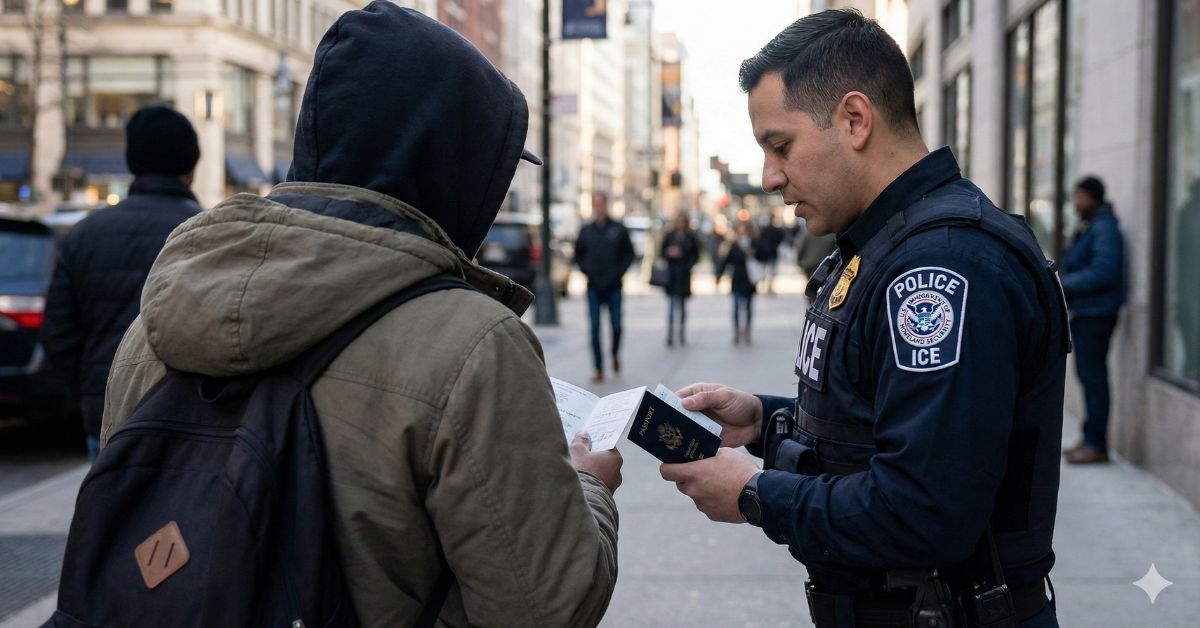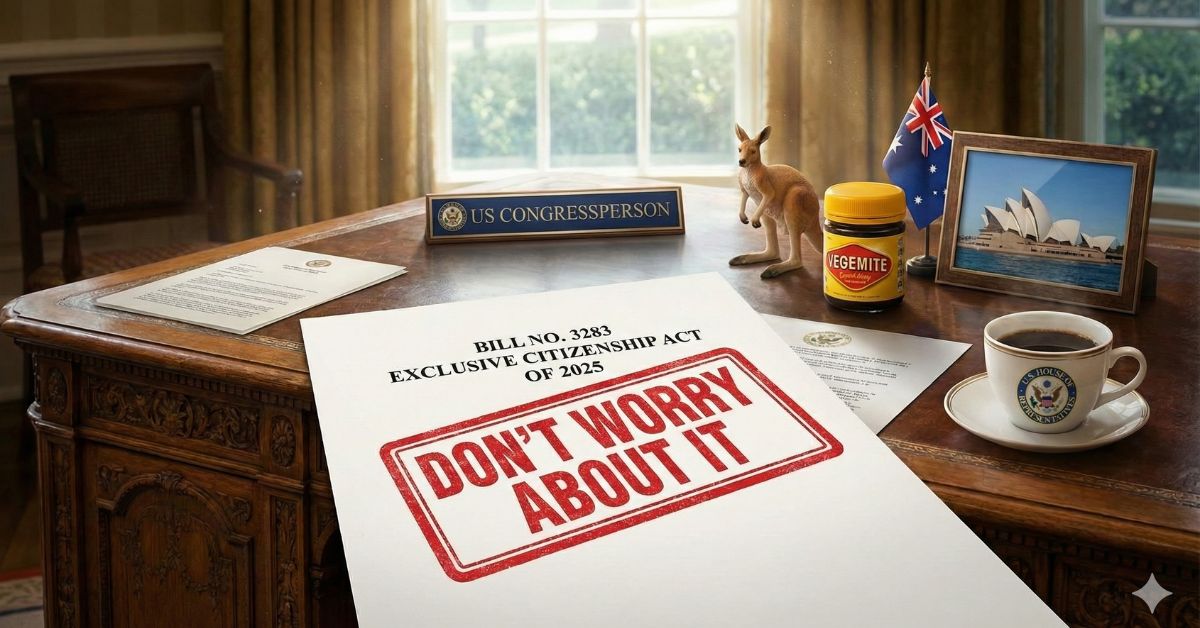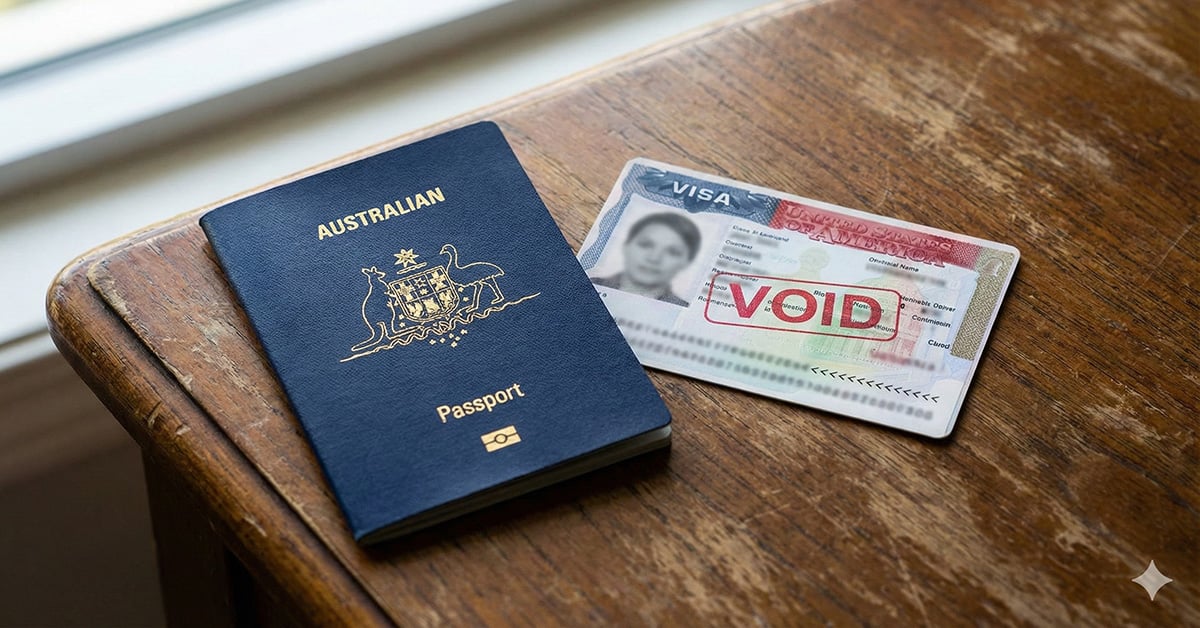If you’ve recently secured a job offer in the U.S. and are preparing to apply for a visa (like the E-3), or you're looking to renew your E-3 Visa, the U.S. Department of State has updated its guidance on September 6, 2025 about where you’re allowed to apply for your visa—and it could affect your timeline, planning, and travel.
Until now, visa applicants were sometimes able to apply for visas and conduct “visa interviews” in countries where they were not a resident. For E-3 visa holders that meant quick trips to London, Barbados, and the Bahamas, however that flexibility may have now been significantly reduced.
Here’s what you need to know and how this might affect you.
Webinar Scheduled with Latest Updates
Watch my webinar with Zjantelle Cammisa Markel, Founder and Principal Attorney at Cammisa Markel from September 11th, 2025 where we talk about what exactly this means for you.
We discussed:
- Recent changes require most non-immigrant visa applicants to attend interviews in their country of nationality or residence.
- The directive is not entirely new, but its enforcement and communication have increased, causing confusion and concern.
- Applicants with existing appointments outside their home country have generally seen those appointments honored, but there is some risk.
- The MRV fee is non-refundable and non-transferable if an appointment is refused or canceled.
- Multiple citizenships or residency in another country may provide alternative options for booking appointments.
- Strategic choice of consulate is important, as different locations have different processing times and requirements.
- Filing an I-129 petition from within the US remains an option for some, but has its own risks and costs.
- The removal of interview waivers and mail-in renewals will likely increase wait times, especially in Australia and other high-demand locations.
- It is important to consult with an immigration attorney to determine the best strategy for your specific situation.
- Don’t make rash decisions—carefully weigh your risk tolerance, timing, and available options.
What’s Changed in Visa Application Policy?
As of September 6, 2025, U.S. embassies and consulates are instructed to only accept non-immigrant visa applicants who are residents of the country in which the consulate is located.
This directive comes from the Department of State via updated guidance, clarifying the responsibilities and limits of consular jurisdiction. While there are still exceptions (which we’ll get to below), this change may limit your ability to “shop around” for appointments in other countries.
Update (9/8 @ 1:30pmET): We have confirmed reports of London appointments being attended and then visas being refused based on this new directive. We are also seeing language reflecting this change appearing on US Consulate & Embassy websites.
Why Has the Rule Been Enforced Now?
Technically, this requirement has always existed in U.S. immigration law—8 CFR 41.101(a) states that visa applications must be made to a consular officer in the applicant’s country of “usual residence”.
But for many years, consulates could accept “third-country national” (TCN) visa appointments at their discretion. Many Australians took advantage of this—booking appointments in places like Barbados, London, the Bahamas or, prior-to-COVID, even Canada and Mexico—especially when appointment wait times were long in Australia.
Now, the Department of State is tightening enforcement of this rule and removing much of that discretion from embassies and consulates. In some cases it will mean that you need to apply in the country where you live.
What’s the Impact for Australians on the E-3 Visa?
If you’re living in Australia and applying for an E-3, this likely won’t affect you—you’ll just continue booking your appointment at the U.S. Consulate in Sydney, Melbourne, or Perth. Interviews are now mandatory with a previous State Department directive starting September 2, 2025.
However, if you were already living in the U.S. and hoping to leave for a quick trip abroad to apply for a new visa (with bonus vacation), this might now be off the table unless you are also a resident in that third country.
In practice, this means:
- You MAY not be allowed to apply outside of Australia unless you are lawfully resident there (not just a holiday visitor.)
- Appointments in other countries may be cancelled or denied at check-in if you don’t meet residency requirements (if you haven't already made the appointment, see below.)
- You may need to travel home to Australia just to get a new visa, even if that wasn’t part of your original plan.
This will particularly affect:
- Australians living in the U.S. and changing employers (i.e. needing a new visa)
- Those planning visa renewal while on holiday
- Australians residing in third countries temporarily (e.g. digital nomads or students)
Are There Any Exceptions?
Yes, but they’re narrow. A consular officer still has discretion and may still accept a visa application from a non-resident if the officer determines there are “extraordinary circumstances” or clear U.S. national interests involved.
In the past, this discretion for urgent appointments (for example) have been extremely limited as an option to regular applicants, so will likely be very difficult to negotiate.
In short: don’t rely on getting an exception unless you’ve specifically discussed your situation with your immigration attorneys and/or the consulate and received explicit approval.
What if you already have an appointment booked in another country?
There is also specifically an outline for “Existing Appointments”:
Existing nonimmigrant visa appointments will generally not be cancelled.
While this is not explicit that appointments will not be affected, we are awaiting more information about what happens and if you do have a personal experience, please do leave a comment below or use our anonymous tip line to provide your feedback.
My personal opinion is that there will be little effect on existing appointments, but do not have any evidence for that.
What Should You Do Now?
Join our upcoming webinar
Apply at home where possible: If you’re in Australia, apply in Sydney, Melbourne, or Perth. Expect a normal timeline and processing experience.
Reconsider a plan a side-trip visa appointment: If you were planning to get a visa in another country, re-check the consulate’s rules—and prepare for rejection if you don’t live there. Importantly many of these locations do not operate in a tech-forward environment and may not update their websites with the latest information. They may also accept your appointment and reject it later, so use caution. Don't assume that just because you got a spot means you will be able to proceed with your interview or be approved on the day.
Factor travel into your timing: If you need a new visa and you’re in the U.S., be aware you may need to travel back to Australia to get one. This can add time, cost, and logistical hurdles.
Watch for consulate-specific policy: We've seen before that some consulates may be stricter or more lenient about enforcement and “extraordinary circumstances,” but the default is now residents only and the safest play is to go back to your country of citizenship or residence.
What About Interview Waivers?
This new location rule is separate from the E-3 visa interview waiver update we reported on recently. That change ends most interview waivers for E-3 visas in September 2025.
The two updates combined mean:
- You may no longer be eligible for a visa interview waiver, and
- You may no longer be able to apply outside your country of residence.
It’s a double-whammy, so be sure to plan ahead carefully.
Yes, it's painful
This update adds another layer of complexity to the already-complicated process of applying for U.S. visas. The main takeaway: unless you live in a country, you probably can’t apply for a visa there anymore.
Australians planning E-3 visa renewals, job switches, or re-entries should start thinking now about their location, timelines, and documentation.
If you’re unsure how this affects your plans—or you’re mid-process and now need to change direction—you should urgently speak talk to an immigration attorney.
As always, it's important to note that I'm not an immigration attorney but I’ll keep you updated with the latest and update this article with any news.



















Great website and resources Josh, well done in helping the E3 community in the US. So THANK YOU!
I’ve recently attended a webinar held by the immigration that partners with my employer. They mentioned that in SOME countries, the appointment software/website/system has changed to a new system which MAY require the DS-160 to be SUBMITTED before the appointment is booked; this creates a problem for those trying to plan ahead, especially with a family having to travel back to Australia. Due to travel costs and flights availability, you’d want to book 6-8 months in advance at least, but the LCA cannot be requested with more than 6 months ahead of start of employment. In addition, the visa renewal appointment has to be booked BEFORE the new visa expires, which means that it is not truly 24 months duration, it may be 22 or 23 months depending on when you can get the appointment.
My plan was to CREATE the DS-160 but refrain from SUBMITTING IT (awaiting LCA), but with the DS-160 generated number you can pay the fee and book the appointment, and when you have that, you can book travel (well in advance).
What I was hoping someone here or in the community (specially for those that recently booked in Australia), is whether they are requiring the DS-160 to be SUBMITTED BEFORE booking the appointment. That would not work for my case. My visa expires in May 2026, and I would like to book travel around late April, early May, but we cannot request the LCA until December, which really means January outcome, pushing out the travel plans by quite a bit.
Does anyone have any recent experiences to share regarding the booking process and ability to submit DS-160 after appointment is scheduled?
I also noticed that the E3 Calendar (a brilliant idea and contribution, so THANKS AGAIN), only shows Perth availability to January 2026. Is that because you can’t book that far in advance for Perth? I see availability in Sydney and Melbourne well into April 2026. Or is it simply no one has shared availability for those future months?
THANK YOU ALL in advance for any answers, insights and contribution to my questions above.
Hi all.. has anyone had trouble finding the link to schedule an appointment? .. I’m going in circles.. I have a new DS160 but I can’t see a link to schedule?
Check this https://americajosh.com/blog/setting-up/how-to-schedule-and-pay-us-visa-list/
I am aussie and my wife colombian. We booked and paid for my e3 renewel in melbourne australia before sep 6. Do you know of any tcn been denied their spouses e3d for this sep 6 rule? Spoken to a number of lawyers and even they dont know. Does anyone know?!
No denials. Some early refusals, but they were reversed in London. We haven’t heard of any refusals that haven’t been reversed.
As an Aussie living in the U.S., I don’t see an issue with this change. For those of us who came on L1 Visas, our process was much stricter, harder and time consuming than the easy E3 Visa process. As Aussies we’re lucky to have this easy E3 process available to us, when so many other folks from different countries don’t. I’ve seen lots of people complaining about this change. Think of it this way, you get to go back home, get the fabulous Qantas service, catch up with family and friends, and stock up on Vegemite, a sausage roll and footy game!
Exaaaactly. Also where is the recap of said webinar, Josh?
Updated the post with the video now!
While I do understand your point, please keep in mind that many people have families here and may not be able to quickly and easily leave the country. They may have jobs with inflexible hours, and they may not be able to afford too many trips back to Australia. Yes, this doesn’t make Australians any less fortunate to have this opportunity, but it’s not an insignificant change and it’s not as simple for some as it is for others.
Josh, I have both a Australian and UK passport. Do you think it’s worth getting an address in the UK so I can rarity continue doing it in London?
I don’t think you need that if you have Citizenship.